15 Careers That Use Python Programming
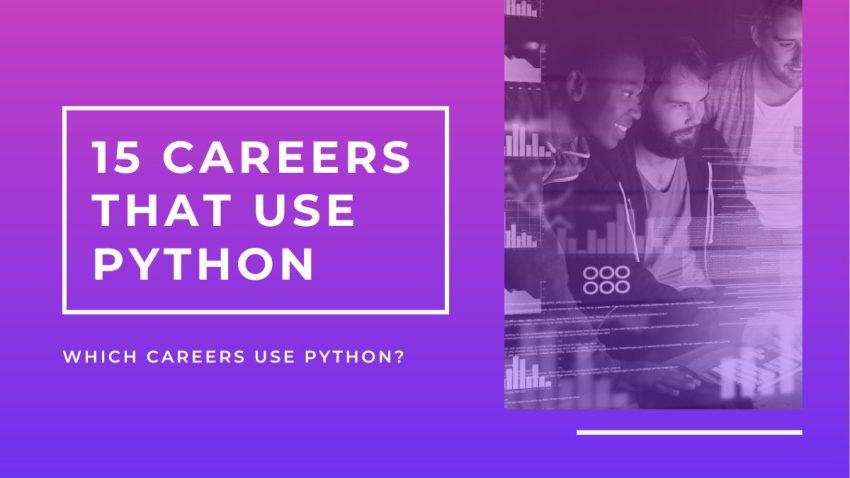
Which Careers Use Python?
Whether you’re a beginner looking to get your feet wet, or a seasoned pro looking to take your career to the next level, Python can open up a world of possibilities.
From creating machine learning models to analyzing data and automating tasks, we’ll explore which careers use Python and why it’s such a valuable asset.
But first, here’s a quick overview of which careers use Python programming:
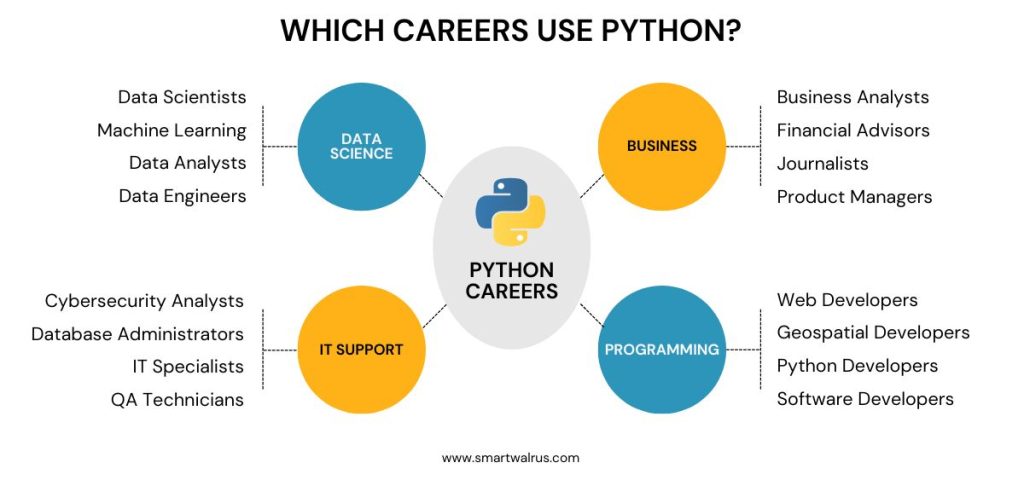
1. Data Analysts
Python allows data analysts to easily manipulate, explore, and visualize data. It also has a number of built-in packages and libraries for performing statistical and numerical analysis.
For example, the Numpy library provides users with mathematical functions to perform calculations on data sets, while the Pandas library provides a set of tools for data manipulation and analysis.
Additionally, visualization tools such as Matplotlib, Seaborn, and Plotly enable users to create visually appealing and informative graphs and charts.
2. Web Developers
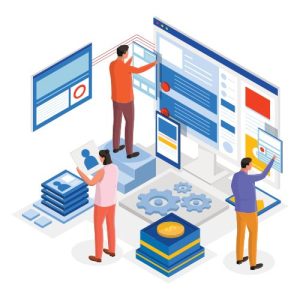
Python provides an extensive range of libraries and frameworks, such as Django and Flask, which web developers use to create complex web applications quickly and easily.
Otherwise, web developers use Python to write server-side web applications, connect to databases, and create web services.
3. Data Scientists
Data scientists use Python to perform various data analysis tasks, such as data wrangling, exploratory data analysis, data visualization, feature engineering, predictive analytics, machine learning, and deep learning.
Python offers a wide range of libraries that are specifically designed for data science activities such as SciPy, Pandas, and Scikit-learn.
4. QA Technicians
Quality Assurance (QA) technicians use Python to automate and streamline the testing process. This can include tests for functionality, performance, compatibility, security, and more.
With Python, QA technicians can create scripts to quickly and efficiently run tests on multiple platforms, increasing the accuracy and speed of the testing process.
5. Machine Learning Engineers
Python offers a number of machine learning libraries such as PyTorch, TensorFlow, and Keras that enable developers to develop machine learning algorithms.
For example, the Scikit-Learn library provides a variety of algorithms that can be used to classify data and make predictions, while the TensorFlow library provides a number of tools for deep learning.
6. Businesses Analysts
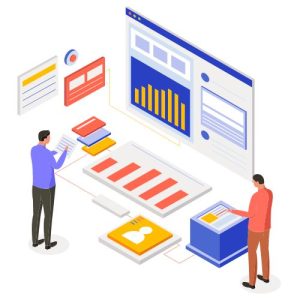
Business analysts use Python to analyze data and identify trends and patterns, create reports, and develop forecasting models for businesses. They can take advantage of the data manipulation capabilities of Python to efficiently extract, clean, and process data from various sources, such as databases and CSV files.
Additionally, they can utilize powerful Python visualization libraries, like Matplotlib and Seaborn, to create visualizations of the insights they have uncovered in their data analysis. From these data visualizations, business analysts can develop predictive models to better meet business goals.
7. Cybersecurity Analysts
Cybersecurity analysts use Python to develop and maintain software, analyze data, and automate tasks. They can use Python to write scripts that can detect, analyze, and respond to cyber threats.
They can also use it to build tools to scan and monitor networks for malicious activity. Cybersecurity analysts use Python to create algorithms that can detect vulnerabilities and analyze malicious code.
8. IT Specialists
Python offers powerful and efficient solutions for many IT tasks. IT specialists use Python for a variety of tasks, from developing software applications and web solutions to automating system processes and analyzing data.
Python can also be used to develop automation solutions that are tailored to the needs of a particular organization. For example, they can automate processes such as server administration, application deployment, network configuration, and system maintenance.
9. Product Managers
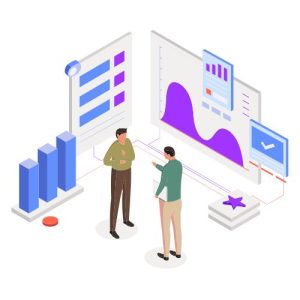
Product managers use Python to streamline their workflow and help them manage the development and launch of their products. For example, they can use Python to create custom reports or to automate email notifications.
Product managers can analyze large datasets in order to gain insights that can inform product decisions. This can include analyzing customer feedback, user behavior data, or sales trends to help them stay organized throughout the development process.
Product managers can also use Python to integrate with other systems like customer relationship management (CRM) platforms, allowing them to get a comprehensive view of their products and customers.
10. Python Developers
Python is a general-purpose programming language to create programs and applications. They can use the language to develop a wide variety of software, from web applications to complex data analysis tools.
Python is highly extensible, meaning that developers can easily incorporate external libraries and modules into their projects. This makes it easy to create tools using a combination of existing code and custom code.
11. Geospatial Developers
In the world of mapping and geospatial technologies, Python has emerged at the forefront of development. For example, geospatial developers use Python for data cleaning and manipulation, creating maps, working with geodatabases, and generating spatial models.
With the support of libraries such as GeoPy, GeoPandas, GDAL, and Folium, Python makes it easy for geospatial developers to create sophisticated applications and analyses quickly and efficiently.
12. Financial Advisors
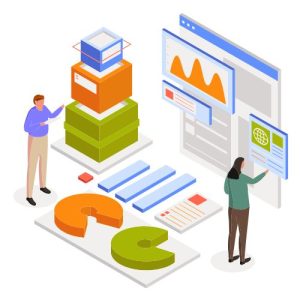
Financial analysts may use Python to develop quantitative models to forecast market movements, predict price movements in stocks and other securities, and build predictive algorithms for trading.
Python and machine learning models are also used for automated trading strategies. For instance, this is for sentiment analysis and high-frequency trading, which enables traders to enter and exit trades quickly.
13. Database Administrators
Database administrators use Python to automate database management tasks, such as creating and managing databases, backing up data, maintaining and troubleshooting databases, and performing security-related operations.
Python enables database administrators to write scripts that allow them to perform multiple tasks quickly, simplifying their workflows and saving them time in the long run. Overall, Python is a powerful tool that can be incredibly useful for database administrators.
14. Data Engineers
Data engineers use Python to create data pipelines that collect and store data from disparate sources. They can also use Python to develop algorithms, build machine learning models, and analyze large data sets.
Data engineers use Python to automate data processing tasks, such as data cleaning, data transformation, and data visualization through ETL processes. These tools are essential for data engineering workflows, allowing data engineers to clean, transform, and enrich data for further analysis and processing in a data warehouse or data lake.
15. Journalists
Journalists use Python for data visualization by utilizing Python libraries such as Matplotlib, Seaborn, and Plotly. These libraries allow journalists to create interactive and highly customizable visualizations that help to illustrate complex data sets in an engaging way.
With Matplotlib, journalists can create basic charts and graphs such as line plots, bar charts, and scatter plots. Seaborn is a great tool for creating more advanced visualizations such as heatmaps and cluster maps. Whereas Plotly is perfect for creating interactive visualizations that can be used on the web or in applications.
Careers That Use Python Programming
Whether you are interested in data science, software development, web development, or anything in between, Python programming is sure to be a valuable asset in your career.
In this article, we explored fifteen careers that use Python programming and the benefits of choosing a job in this field.
Can you think of anything that we missed? We’d love to get some feedback from you in our comment section below.

Related Programming
What Is a Computer Scientist?
12 Best Python IDEs for Programming
Float vs Double: What’s the Difference?
The Ultimate Coding Guide for Beginners: A Step-by-Step Walkthrough
10 VR Programming Languages for Developing VR Applications
5 Best Modded Minecraft Hosting Providers
The Transition from Arts to Computer Science
What’s the Difference Between Java and JavaScript?